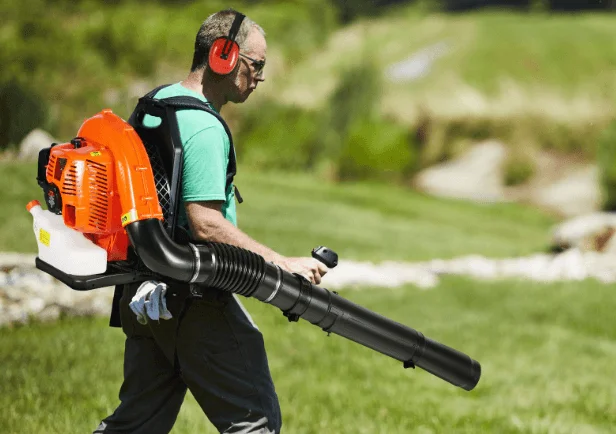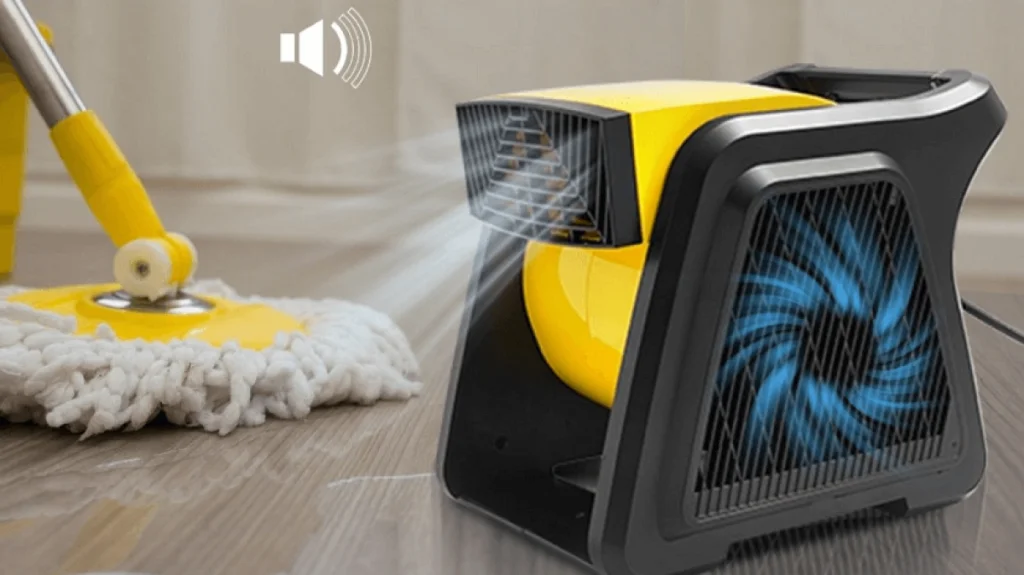It’s a Saturday morning. The sun is shining, you have a free day from work, and you’re finally ready to tackle your overgrown lawn. You grab your coffee, get in your boots, and step outside, only to realize your old gas-powered lawn mower is on its last legs. Maybe because it’s too loud, you can’t even hear Mr. Jones, your old neighbor greeting you over his coffee cup, or too smoky, it’s leaving a trail behind you.
You know it’s time for a new one, but you’re faced with an ancient debate: should you get a new gas lawn mower or go electric? You can either stick with a gas engine’s reliable roar or switch to an electric motor’s soft hum. This decision isn’t only about noise levels or ease of use; you must also consider efficiency and cost.
Your choice can also affect your workload, utility bills, and carbon footprint. This is even more relevant because you have access to several reputable brands, such as VEVOR, a brand that produces a wide range of electric-powered lawn tools for your needs. So, you don’t know which to go for. Don’t worry — in this guide, we’ll talk about electric vs gas lawn equipment and help you determine which is right for you.
Table of contents
Understanding Lawn Equipment: Electric vs Gas
Electric lawn equipment is powered by electricity. You either plug the cord into a power outlet or use rechargeable batteries. Anything can be electric, including mowers, trimmers, leaf blowers, and chainsaws. Electric lawn equipment is usually quieter, lighter, and easier to maintain.
Gas-powered lawn equipment runs on gasoline or a mix of gas and oil. Unlike electric equipment, it doesn’t rely on cord or battery life, so you don’t need to worry about recharging it or staying close to a power source. However, it does need regular maintenance, like oil changes and air filter replacements.
If you’re comparing electric and gas-powered lawn equipment, you must consider several factors, such as:
- Power: Gas-powered tools outperform electric ones in raw power and endurance, which makes them a better choice if you have a large yard.
- Ease of use: Electric equipment is easier to use. You don’t need to start an engine or manage fuel. Battery-operated models also remove the hassle of cords, so they can be as flexible as gas models. Gas tools are powerful but too heavy.
- Maintenance: Electric lawn equipment is almost maintenance-free— no oil changes, air filters, or spark plugs to worry about. You just need to keep the batteries charged and the tools clean.
- Cost: Electric tools are more expensive than gas-powered ones. But electric tools save money over time because they’re low maintenance— you don’t have to get fuel, oil, or regular maintenance.
What is Electric Lawn Equipment?
There are two types of electric lawn equipment: corded tools, which you need to plug into an outlet, and battery-powered ones. Battery-powered ones, like the VEVOR Battery-powered cordless lawn edgers are mobile without the constraints of cords. Corded tools provide a continuous power supply, but you have limited movement range due to the cord length.
People like electric tools better because they are quieter, lighter, and require little maintenance compared to gas-powered alternatives. They’re also perfect for eco-conscious consumers who want to reduce noise pollution and carbon footprints.

What is Gas-Powered Lawn Equipment?
Gas-powered lawn equipment make use of internal combustion engines fueled by gasoline or a gas-oil mix. They’re powerful and can handle more heavy-duty tasks. These tools have been popular for being reliable and tough, especially when you don’t have to worry about cords or batteries. And while they’re usually known to be heavy, there are lighter gas-powered tools.
For instance, the VEVOR 2 Cycle Gas Hedge Trimmer has a lightweight design that keeps the weight off the user. It also comes with various accessories, like ear protectors, gloves, storage bags, funnels, and mixing bottles— basically everything you need to make using the trimmer easier.
Recommended For Your Project
Electric vs Gas Lawn Equipment: Power and Performance Comparison
Power and performance are what sets electric tools apart from gas-powered ones. Gas-powered tools traditionally deliver more power output, which makes them ideal for high-intensity jobs. They can handle large lawns, thick grass, and overgrown weeds. VEVOR Backpack Leaf Blower, for instance, has a power advantage that comes from internal combustion engines to give good performances.

An electric lawn equipment, on the other hand, is more suited for light to medium-duty tasks. Battery-powered and corded electric mowers, trimmers, and blowers work on small or medium-sized lawns. They’re quieter to work with, but their power output does not match gas-powered tools. One of the cons of battery-powered is that it’s limited. You need to recharge it frequently or carry multiple battery packs. Corded electric tools are also restricted by their range, which is determined by the length of the cord.
However, recent developments in battery technology have improved the power and runtime of electric lawn equipment. High-capacity lithium-ion batteries make these tools more capable in terms of performance. For instance, the VEVOR Cordless Hedge Trimmer comes with a 20V, high-capacity battery and fast charger. If you charge it for an hour, you can trim large areas of flower beds, shrubs, and small branches without having to pull cords along.
Best Choice for Small Yards
Electric lawn equipment is the best option for small yards because they’re quieter (especially if you love chatting with Mr Jones), easy to use, and easily maintained. Battery-powered and corded electric trimmers and mowers can easily handle tasks like mowing and edging without noise or fumes.
Heavy-Duty Work with Gas Tools
Gas-powered lawn tools are great for large lawns, especially if you are a professional who needs maximum power and endurance. They have powerful engines that can handle high-intensity tasks. They also have longer runtimes because you don’t need to charge them. The only downside is the frequent maintenance.
Environmental Impact: Electric vs Gas Lawn Equipment
The world is leaning towards an environmentally friendly approach, and gas-powered tools aren’t exactly the definition of environmentally friendly. They burn fossil fuels, which release harmful emissions, including carbon monoxide and hydrocarbons, into the air. This pollutes the air and contributes to climate change. The U.S. Environmental Protection Agency (EPA) says that operating a gas mower for an hour can create as much pollution as driving a car for 45 miles.
Electric tools, on the other hand, whether it’s cordless or battery-operated, produce zero emissions when in use. They don’t need fossil fuels, which reduces the carbon footprint associated with lawn care. They’re a more environmentally friendly choice than gas-powered tools. Besides this, they’re also relatively quiet. Gas-powered tools are notoriously loud; your neighbors probably dread “lawn mowing Saturdays.” Electric tools are quieter, which is good for residential areas.
Are Electric Tools Truly Eco-Friendly?
While electric lawn tools are eco-friendlier than gas-powered tools, their performance boils down to battery production and disposal. Manufacturing lithium-ion batteries involves mining rare minerals, which may harm the ecosystem. People can also contaminate the environment if they don’t dispose of these batteries properly. But the manufacturing industry is using renewable energy in production, and there’s better recycling technology now.
The Environmental Cost of Gas Lawn Tools
Gas-powered lawn tools contribute greatly to air and noise pollution. Their gas emissions contaminate the air and the environment. These tools are also loud enough to disturb the human community and local wildlife. They also require fueling, which involves the extraction and burning of fossil fuels, further increasing their negative environmental impact.
Maintenance: Electric vs Gas Lawn Equipment
Electric cords are easier to maintain. They require minimal upkeep — you only need to do occasional maintenance besides cleaning after use and battery care. Gas-powered tools need regular oil changes, replacing spark plugs, cleaning the air filter, and checking the fuel gauge. They also need periodic checks for engine wear and tear, although electric cords also need this.
Electric tools have fewer moving parts and no internal combustion engines, which reduces the risk of mechanical failure. As a result, electric equipment is generally more reliable and less prone to breakdowns, but their battery life can degrade over time, which means you may need to replace the battery every few years.
Gas-powered tools, on the other hand, have a longer lifespan if well-maintained. If you service your tools well, store them properly, and replace the parts on time, they should work perfectly for years. They can do all the heavy work and still operate perfectly after years of use.
Low Maintenance of Electric Lawn Tools
Electric lawn tools are low-maintenance. They don’t need oil changes or fuel storage, which makes them easier to care for. Clean them occasionally and store them properly to maximize their lifespan.
Gas Tools Require More Upkeep but Last Longer
Gas tools require more attention, but if you care for them properly, they often last longer. You should consider one if you need something powerful for a large lawn or garden and have the time to maintain it.
Cost of Electric vs Gas Lawn Equipment
When comparing the costs of either of these, you should consider the upfront purchase and the long-term costs. Electric lawn equipment is usually more expensive due to the price of batteries, but it has lower long-term costs because you don’t need to buy gasoline or oil. Over time, the money you save from avoiding fuel purchases and reduced upkeep offsets the higher upfront investment.
Initial Purchase Costs
Gas-powered lawn equipment is cheaper at the time of purchase. But you spend more and more on them with time. When you calculate the total ownership costs, electric tools can sometimes be more cost-effective, especially if you’re a homeowner who needs lower operating expenses.
Long-Term Costs: Fuel vs Battery Replacement
The primary recurring expense for electric lawn equipment is battery replacement, which you only need to do once every few years. Depending on your use, you may also need to service your gas-powered tools every few months and fuel them probably once every month. All that cost can add up over time to make them expensive, although it’s safe to say oil changes pale in comparison to the price of battery replacement.
Electric or Gas Lawn Equipment: Which Suits Your Needs?
Ultimately, your choice should be determined by your yard size, budget, and maintenance preferences. Both tools have their advantages and disadvantages depending on the individual using them.
For Small Yards and Casual Users
Consider electric lawn equipment if you have a small yard or you’re a casual user who needs a cost-effective solution for your lawn. They’re quieter, cheaper to maintain, and do not require gasoline.
For Large Yards and Heavy-Duty Needs
Get gas-powered equipment if you have large yards or heavy-duty lawn care needs. While they may need regular maintenance, they’re more powerful and have longer runtimes. If you deal with a lot of tough grass and dense weeds, consider getting lawn equipment that can handle it.
Conclusion
So many things determine which option you should go for. Consider your yard size, how well you can maintain them, how much you have, and if they are environmentally friendly. Whichever one your answers lean toward, make sure you are buying from a reliable brand. Here, we recommend that you buy from VEVOR going by the brand’s excellent track record of quality and affordability. According to independent reviews and user feedback, VEVOR produces high-quality electric and gas lawn equipment built to last. To make a purchase, visit the VEVOR store now to snag your lawn equipment at affordable prices.





